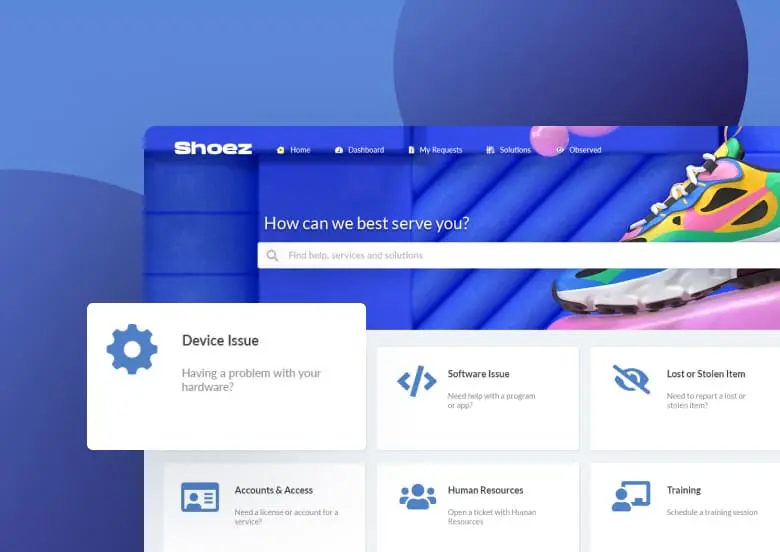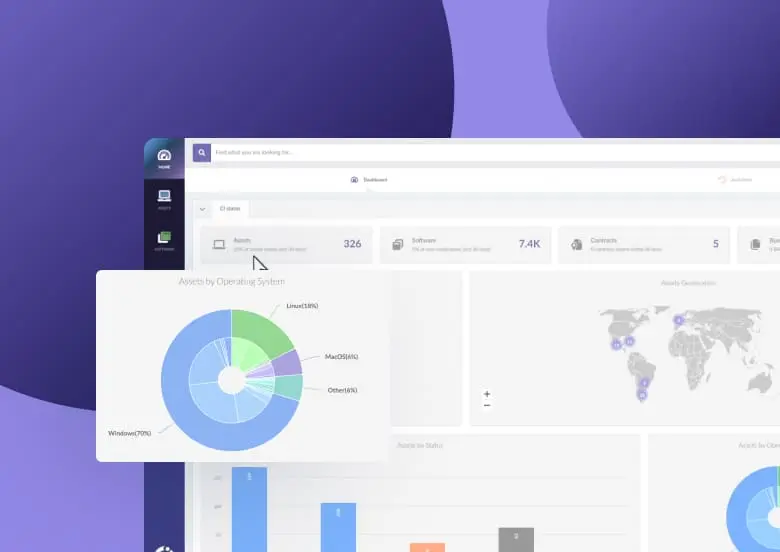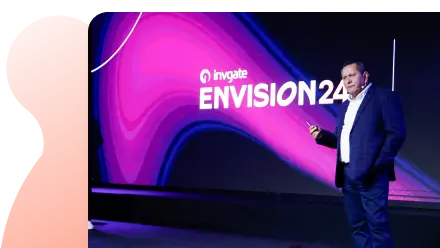The Knowledge Centered Service – also known as the Knowledge Centered Support or the KCS – is a methodology and set of practices designed to integrate knowledge creation and maintenance into the daily workflow of an organization. Through active collaboration between teams and continuous knowledge capture, it helps improve the efficiency and effectiveness of customer support and Service Management functions.
Lana Kosnik is a Knowledge Centered Service V6 Trainer and currently works at Upland Software as KCS Knowledge Management Practice Manager. On the 76th episode of Ticket Volume, she introduced two of the main elements of the KCS method: the four core principles that guide the practice and the peer-to-peer coaching system. She also explained how implementing this methodology can benefit organizations in terms of efficiency and organizational development.
Don’t miss this synopsis of this episode – and remember to enroll in our monthly webinars! This will give you the chance to pose your questions in real time during the live sessions.

Key principles of the KCS
During the episode, Lana explored the key elements of the KCS. In essence, the system offers a robust theoretical framework bringing together many elements that are put into practice to create a more lively approach to Knowledge Management. This looks to foster a culture of non competition, where the focus is put on abundance and collaboration.
With that being said, and to give an overview of the main elements of the methodology, Lana presented them briefly in the same order she follows during her workshops. She explained that in the first part she would go through the Solve and Evolve loop processes, including the eight practices that make them up and how they work together. To finish off, she would close by going through the ten core concepts and four principles that make up the KCS.
To dig a little further, she detailed the four KCS principles and what they stand for. The idea is that these principles enable you to filter out any questions that get asked in the KCS environment, guiding you through how to handle any issue that comes up.
The four KCS principles are :
- Abundance - Standing in opposition to scarcity, where you would be afraid to put information out there because others will get access to it, abundance states that more knowledge is better. The more you share the more you learn, and the more everybody stands to win.
- Create value - This encourages you to not merely solve your daily tasks mechanically, but put your eye on the bigger picture and ask yourself how the job fits into the overarching vision and goals of the organization.
- Demand-driven - The guiding principle here is “Just in time, not just in case.” This means handling issues only when they arrive and not spending time on all the possible scenarios or documenting everything to be on the safe side.
- Trust - Finally, it is encouraged to come at things from trust. Having confidence in your colleagues means not trying to close things off when they make a mistake but rather trying to teach them better. This creates a lighter and more collaborative environment.
KCS vs. traditional Knowledge Management
Following up, the conversation shifts towards the differences between the Knowledge Centered Service and a more traditional Knowledge Management practice. Lana made the argument that the KCS looks to react and build knowledge upon real life interactions. That is, “capturing things as they go, and building the knowledge base as people bring the questions.”
On the other hand, a more traditional approach is proactive and focuses on the design of extensive documentation and manuals. A comprehensive Knowledge Management strategy, she stated, should incorporate both: while process documentation is a necessary first step, the KCS is able to efficiently find the holes (anything that isn’t clear, isn’t working, or might be missing) in it in order to fix it timely and efficiently.
|
|
"With KCS we are reacting. Knowledge is a product of interaction with KCS, it’s not anticipating what we might need to know. And product documentation is proactive, they are writing how this feature or function or tool or process works in the way that it’s thought to work. Proactive as in the way that it is meant to work, and reactive KCS documentation is the way that we are actually using it." Lana Kosnik |
If you want to further learn about the Knowledge Centered Service, don't miss out on the chance to listen to the webinar we hosted on KCS best practices. There you will find insights from Liz Bunger and Michelle Stumpf on how to implement the methodology successfully and incorporate knowledge creation as the solid foundation of organizational effectiveness.
5 benefits of KCS implementation
What can a successful KCS implementation do for an organization? In short, Lana argued, the method enables you to count on higher quality and more available knowledge across teams, driving efficiency and continual service improvement.
The main benefits of the KCS are:
- Operational efficiency - Continually reviewing the available knowledge helps ensure it is always updated and accurate, equipping teams to solve incoming issues faster (especially for the most common requests).
- First Contact Resolution (FCR) - When agents have useful and accessible information to work with, FCR rates increase and unnecessary ticket escalations are avoided.
- Self-service capabilities - Down the same line, customers will have more success when using self-service options if they have higher quality inputs. This can be measured, for instance, if after they access a knowledge base article they then don’t open a ticket.
- Organizational learning and development - When documentation is updated, all the ecosystems related to knowledge are improved. For example, support might be able to identify bugs faster and bring them into the development team.
- Culture shift - Finally, the KCS encourages a different environment in organizations, fostering a culture of trust, collaboration, and teamwork.
KCS Coaching Program
Lana also explained the functioning of the Knowledge Centered Support Coaching Program. Having given her first steps in acquisition, she is now dedicated to training in the KCS methodology, which includes, among other educational practices, participating in a coach development workshop.
As Lana illustrated, coaching is one of the main elements of the KCS system’s successful functioning. Counting on competent and well-trained coaches is key to ensure a smooth implementation of the methodology and to support the development of the knowledge workers along the process. They are in charge of both introducing the KCS framework and fostering collaboration and teamwork when incorporating knowledge capture into everyday tasks.
In a Knowledge Centered Support environment, she explained, the coaching program works in a peer-to-peer manner. To spell this out, you work with someone that is at your level to walk through the workflow and lay out the steps that have to be followed to make sure that KCS happens. The main reason for this approach is that the best people to coach are the knowledge workers themselves, meaning those who are doing the day to day job and know the workflows inside out.
|
|
"It’s kind of cross training, but really it’s peer training. So, we want to make sure knowledge workers are working with knowledge workers. They don’t have to be in the same team, or even the same product, because we are teaching them the workflow that everybody is working on. We are teaching them to do our KCS behaviors and think in a KCS way. (...) How do we capture? How to identify what somebody is asking me and search it to see if it is in our knowledge base and then add it?" Lana Kosnik |
To sum up
This was a recap of the episode, so don’t miss out on the opportunity to catch the entire recording and gain further insights from Lana Kosnik about the Knowledge Centered Service. Discover how the elements that make up the KCS come together to put knowledge capture in the center, boosting your support team’s and overall organization’s effectiveness.
Explore the complete episode on platforms such as Apple Podcasts, Spotify, YouTube, or your preferred podcast platform. Also, don't forget to register for our monthly webinars, where you can actively engage by posing questions directly during the session!
















